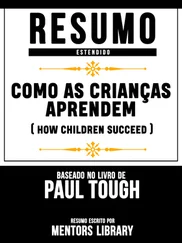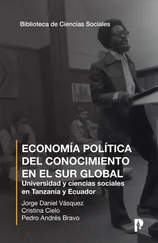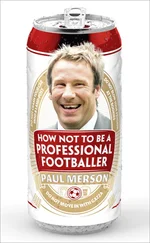Attachment and Biobehavioral Catch-up : Mary Dozier et al., “Developing Evidence-Based Interventions for Foster Children: An Example of a Randomized Clinical Trial with Infants and Toddlers,” Journal of Social Issues 62, no. 4 (2006).
After just ten home visits: Kristin Bernard et al., “Enhancing Attachment Organization Among Maltreated Children: Results of a Randomized Clinical Trial,” Child Development 83, no. 2 (March 2012).
Heather Mac Donald, an Olin fellow: Heather Mac Donald, “Chicago’s Real Crime Story,” City Journal, Winter 2010.
2. How to Build Character
who won them (and their parents) over: Jay Mathews, Work Hard. Be Nice.: How Two Inspired Teachers Created the Most Promising Schools in America (Chapel Hill, NC: Algonquin Books of Chapel Hill, 2009), 160.
the highest scores of any school in the Bronx: Abby Goodnough, “Structure and Basics Bring South Bronx School Acclaim,” New York Times, October 20, 1999.
a front-page story on KIPP in the New York Times: Jodi Wilgoren, “Seeking to Clone Schools of Success for the Poor,” New York Times, August 16, 2000.
completed a four-year college degree: KIPP pays particular attention to the six-year graduation figure because it is the generally accepted benchmark for college-graduation statistics. As of the spring of 2012, nine years after the students in KIPP Academy’s Class of 2003 were scheduled to graduate from high school, two members of the cohort are still enrolled in a BA program and on track to graduate this year, which will put the class’s total graduation rate at 26 percent. Three other students have earned two-year degrees. The remaining twenty-five students have no postsecondary degree.
Learned Optimism, a book by Martin Seligman: Martin E. P. Seligman, Learned Optimism: How to Change Your Mind and Your Life (New York: A. A. Knopf, 1991).
a “severe low mood”: Ibid., 13.
permanent, personal, and pervasive: Ibid., 44.
a “manual of the sanities”: Christopher Peterson and Martin E. P. Seligman, Character Strengths and Virtues: A Handbook and Classification (Oxford: Oxford University Press, 2004), 4.
a “science of good character”: Ibid., 9.
works from Aristotle to Confucius: Ibid., 15.
“Virtues,” they wrote, “are much more interesting”: Ibid., 10.
“the good life”: Ibid., 4.
a big national push for character education: See, e.g., Roger Rosenblatt, “Teaching Johnny to Be Good,” New York Times Magazine, April 30, 1995; and Charles Helwig, Elliot Turiel, and Larry Nucci, “Character Education After the Bandwagon Has Gone,” paper presented in L. Nucci (chair), “Developmental Perspectives and Approaches to Character Education,” symposium conducted at the meeting of the American Educational Research Association, Chicago, March 1997.
A national evaluation of character-education programs: Social and Character Development Research Consortium, Efficacy of Schoolwide Programs to Promote Social and Character Development and Reduce Problem Behavior in Elementary School Children (Washington, DC: National Center for Education Research, Institute of Education Sciences, U.S. Department of Education, 2010); Sarah D. Spark, “Character Education Found to Fall Short in Federal Study,” Education Week, October 21, 2010.
In his 2008 book: David Whitman, Sweating the Small Stuff: Inner-City Schools and the New Paternalism (Washington, DC: Thomas B. Fordham Institute, 2008).
“not just how to think but how to act”: Ibid., 3.
“The problem, I think, is not only the schools”: Martin E. P. Seligman, Flourish: A Visionary New Understanding of Happiness and Well-Being (New York: Free Press, 2011), 103.
For her first-year thesis: Angela Lee Duckworth and Martin E. P. Seligman, “Self-Discipline Outdoes IQ in Predicting Academic Performance of Adolescents,” Psychological Science 16, no. 12 (2005).
an ingenious experiment to test the willpower: Walter Mischel, “From Good Intentions to Willpower,” in The Psychology of Action: Linking Cognition and Motivation to Behavior, eds. Peter M. Gollwitzer and John A. Burgh (New York: Guilford Press, 1996); Jonah Lehrer, “Don’t!,” New Yorker, May 18, 2009.
Children who had been able to wait for fifteen minutes: Lehrer, “Don’t!”
think of the marshmallow as a puffy round cloud: Walter Mischel, Yuichi Shoda, and Monica L. Rodriguez, “Delay of Gratification in Children,” Science 244, no. 4907 (May 26, 1989).
a researcher named Calvin Edlund: Calvin V. Edlund, “The Effect on the Behavior of Children, as Reflected in the IQ Scores, When Reinforced After Each Correct Response,” Journal of Applied Behavior Analysis 5, no. 3 (Fall 1972).
two researchers from the University of South Florida: Joy Clingman and Robert L. Fowler, “The Effects of Primary Reward on the I.Q. Performance of Grade-School Children as a Function of Initial I.Q. Level,” Journal of Applied Behavior Analysis 9, no. 1 (Spring 1976).
giving blood donors a small financial stipend: Steven D. Levitt and Stephen J. Dubner, Freakonomics: A Rogue Economist Explores the Hidden Side of Everything (New York: HarperCollins, 2005).
He tested several different incentive programs: Roland G. Fryer Jr., “Financial Incentives and Student Achievement: Evidence from Randomized Trials,” Quarterly Journal of Economics 126 (2011); Roland G. Fryer, “Teacher Incentives and Student Achievement: Evidence from New York City Public Schools,” NBER Working Paper 16850 (Cambridge, MA: National Bureau of Economic Research, March 2011); Roland G. Fryer Jr., “Aligning Student, Parent, and Teacher Incentives: Evidence from Houston Public Schools,” NBER Working Paper 17752 (Cambridge, MA: National Bureau of Economic Research, January 2012); Amanda Ripley, “Should Kids Be Bribed to Do Well in School?,” Time (April 8, 2010); Elizabeth Green, “Study: $75M Teacher Pay Initiative Did Not Improve Achievement,” Gotham Schools (March 7, 2011).
Segal wanted to test how personality: Carmit Segal, “Working When No One Is Watching: Motivation, Test Scores, and Economic Success,” Management Science (in press).
Big Five conscientiousness was embraced: See, e.g., “Introduction: Personality and Industrial and Organizational Psychology,” in Personality Psychology in the Workplace, eds. Brent W. Roberts and Robert Hogan (Washington, DC: American Psychological Association, 2001); and Robert Hogan, Personality and the Fate of Organizations (Mahwah, NJ: Lawrence Erlbaum Associates, 2007).
it predicts so many outcomes: Brent W. Roberts et al., “The Power of Personality: The Comparative Validity of Personality Traits, Socioeconomic Status, and Cognitive Ability for Predicting Important Life Outcomes,” Perspectives on Psychological Science 2 (2007); Angela Lee Duckworth and Kelly M. Allred, “Temperament in the Classroom,” in Handbook of Temperament, eds. R. L. Shiner and M. Zentner (New York: Guilford Press, in press).
In their 1976 book: Samuel Bowles and Herbert Gintis, Schooling in Capitalist America: Educational Reform and the Contradictions of Economic Life (New York: Basic Books, 1976).
“to be properly subordinate”: Ibid., 130.
“conscientious, responsible, insistently orderly”: Ibid., 135.
Читать дальше
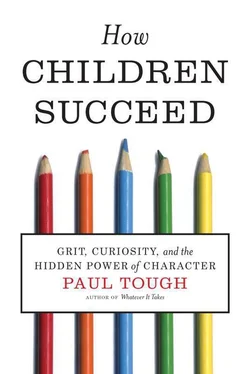

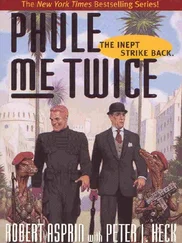
![Коринн МакКей - How to Succeed as a Freelance Translator [calibre 3.46.0]](/books/402693/korinn-makkej-how-to-succeed-as-a-freelance-transl-thumb.webp)


